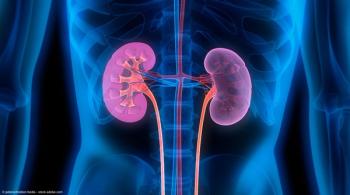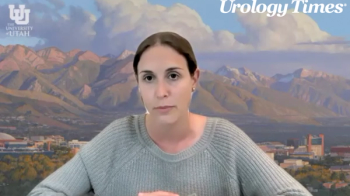
Lymph node dissection in high-risk UTUC: Urologists should “keep an open mind”
“I would ask the practicing urologist to keep an open mind and not be dogmatic about how they've practiced in the past, and to consider the multiple lines of both indirect and direct evidence that exist,” says Surena F. Matin, MD.
In this video, Suzanne Lange, MD, and Surena F. Matin, MD, share the take-home message from their European Urology Focus study, “Optimizing Lymph Node Dissection at the Time of Nephroureterectomy for High-risk Upper Tract Urothelial Carcinoma.” Lange is a urologic oncology fellow at the University of Texas MD Anderson Cancer Center in Houston and Matin is a professor of urology at the University of Texas MD Anderson Cancer Center.
Transcription:
Lange: I think that practicing urologists should be considering this in high-risk patients. It's difficult when it's not clearly outlined in the guidelines, but it should be something that we are considering, especially when we look at patients with bladder cancer or testicular cancer where they're using very defined prespecified templates. And it's also something we should be considering here, because it may truly be beneficial for these patients.
Matin: I would echo that. I would ask the practicing urologist to keep an open mind and not be dogmatic about how they've practiced in the past, and to consider the multiple lines of both indirect and direct evidence that exist. We know with bladder cancer, which is the most common urothelial cancer we have, it's pretty well established that lymph node dissection is not just diagnostic, but therapeutic. There are some differences with upper tract disease, but they're not such differences that would eliminate the ability to relay that same benefit, in that setting. Again, I would ask practitioners to keep an open mind. The other thing is, it is a rare cancer, and some urologists may not see more than a couple of cases a year. If that's the case, there should be no concern really about referring these patients to higher volume centers.
Lange: We are talking more and more about understanding practice patterns of providers in general and then improving the quality of our care. There was one paper we discussed, where they pointed out that this should be considered a quality indicator for management of upper tract urothelial carcinoma, and so they're bucketing it with using intravesical chemotherapy at time of the nephroureterectomy or considering systemic chemotherapy, and the other one was ensuring an adequate bladder cup is taken. It's becoming a very important thing and I think people are highlighting it more, and we have to keep raising attention to it.
This transcription was edited for clarity.
Newsletter
Stay current with the latest urology news and practice-changing insights — sign up now for the essential updates every urologist needs.






